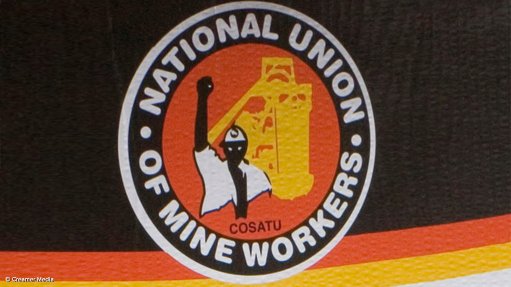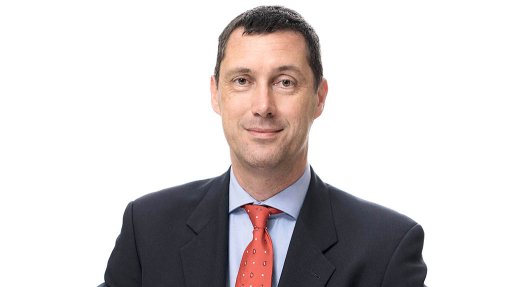Safcei and Earthlife Africa challenge new nuclear build on adequacy of information provided by Nersa
Civil society organisations the Southern African Faith Communities’ Environment Institute (Safcei) and Earthlife Africa have launched an application to review and set aside the 2 500 MW new nuclear build Section 34 determination.
They argue that the Electricity and Energy Minister's determination is unlawful and unconstitutional because the process has, thus far, been procedurally unfair.
In July 2023, the Department of Minerals and Energy (DMRE) submitted a report in purported satisfaction of the suspensive conditions for a nuclear build determination, which the National Energy Regulator of South Africa (Nersa) accepted.
However, despite its conditional concurrence, Nersa has subsequently refused to provide the organisations and the public with information about its concurrence or an opportunity to make further representations when the Minister of Energy apparently had met the suspensive conditions, the civil society organisations say.
“Nersa’s failure to make the DMRE’s report available to the public for further comment was procedurally unfair,” says Safcei executive director Francesca de Gasparis.
Nersa also failed to adequately facilitate public participation before deciding whether to concur with the determination. Nersa’s public participation process did not give interested and affected parties adequate information or documents.
The organisations contend that they ought to have been provided, at the very least, with any roadmap developed by the Minister as envisaged in the Integrated Resource Plan 2019 (IRP 2019); the responses to the DMRE's 2020 request for information; any documents considering and assessing available technologies; any documents considering and assessing funding models; and any affordability assessments, including financial risk assessments.
Following initial public consultations, in September 2021 Nersa gave a conditional concurrence with a draft nuclear determination signed by the Minister of Energy in March 2020.
This means its decision was subject to a number of suspensive conditions. These conditions required the Minister of Energy to provide further information to show that the build was affordable, that technological developments were taken into account, and that 2 500 MW of new nuclear electricity generation capacity was rational.
This requires an energy demand analysis to inform the energy mix required to meet the envisaged demand, and to assist in determining the required capacity and scale of nuclear procurement.
If not met, then Nersa has not concurred with the determination for more nuclear energy, Safcei and Earthlife Africa say.
Further, the IRP2019 did not include new nuclear capacity as part of the least-cost electricity generation mix for the 2030 planning horizon. Instead, it included a policy decision to start preparations for a 2 500 MW nuclear build programme at an affordable pace and scale, highlights Earthlife Africa director Makoma Lekalakala.
“Various versions of the IRP that used these costs never included new nuclear as part of the least-cost solution. New nuclear was introduced as a result of policy interventions.”
Additionally, there has been no determination that new generation capacity is needed. Safcei and Earthlife Africa aver that the Electricity Regulation Act requires the Minister to determine that new generation capacity is needed to ensure the continued uninterrupted supply of electricity.
The organisations contend further that there is no indication that either Minister satisfied himself that the procurement of 2 500 MW of new nuclear generation capacity would be at a pace and scale the country could afford before publishing the determination.
“The exorbitant costs and lengthy build time, likely to be more than a decade, that are associated with nuclear energy projects will divert funds away from essential public services like healthcare, education, housing and infrastructure development, and all these services are already suffering drastically,” concurs De Gasparis.
Meanwhile, while the DMRE submitted evidence that Nersa has purportedly satisfied the suspensive conditions, there is no evidence that suspensive conditions that Nersa attached to its concurrence to the determination were fulfilled, she says.
These suspensive conditions included satisfaction of decision 8 of the IRP2019, which requires that the nuclear build programme must be at an affordable pace and modular scale that the country can afford because it is a no-regret option in the long term.
Another suspensive condition included further establishing the rationality behind 2 500 MW capacity of nuclear.
A demand analysis aimed at determining the envisaged load profile post 2030 to derive the generation mix that is needed to meet the envisaged demand was required, which would assist to determine the capacity and the scale at which the country would need to procure nuclear, the organisations say.
Meanwhile, the DMRE’s recently gazetted draft IRP2023 includes in one of its pathways the addition of 2 500 MW of new nuclear generation capacity by 2035, a further 1 925 MW of new nuclear capacity by 2040, and an additional 10 075 MW of new nuclear capacity by 2050.
This nuclear new build programme totalling 14 500 MW would overshadow the former, much-criticised 9 600 MW nuclear new build programme, which could have cost South Africa an estimated R1-trillion.
The organisations have estimated costs for the 2 500 MW new nuclear build programme at R330-billion.
“Safcei and Earthlife Africa stand firm in their opposition to nuclear energy, citing its financial, environmental and social risks. They call on government to prioritise transparent and inclusive decision-making processes, ensuring that civil society voices are heard and considered,“ the organisations say.
Article Enquiry
Email Article
Save Article
Feedback
To advertise email advertising@creamermedia.co.za or click here
Announcements
What's On
Subscribe to improve your user experience...
Option 1 (equivalent of R125 a month):
Receive a weekly copy of Creamer Media's Engineering News & Mining Weekly magazine
(print copy for those in South Africa and e-magazine for those outside of South Africa)
Receive daily email newsletters
Access to full search results
Access archive of magazine back copies
Access to Projects in Progress
Access to ONE Research Report of your choice in PDF format
Option 2 (equivalent of R375 a month):
All benefits from Option 1
PLUS
Access to Creamer Media's Research Channel Africa for ALL Research Reports, in PDF format, on various industrial and mining sectors
including Electricity; Water; Energy Transition; Hydrogen; Roads, Rail and Ports; Coal; Gold; Platinum; Battery Metals; etc.
Already a subscriber?
Forgotten your password?
Receive weekly copy of Creamer Media's Engineering News & Mining Weekly magazine (print copy for those in South Africa and e-magazine for those outside of South Africa)
➕
Recieve daily email newsletters
➕
Access to full search results
➕
Access archive of magazine back copies
➕
Access to Projects in Progress
➕
Access to ONE Research Report of your choice in PDF format
RESEARCH CHANNEL AFRICA
R4500 (equivalent of R375 a month)
SUBSCRIBEAll benefits from Option 1
➕
Access to Creamer Media's Research Channel Africa for ALL Research Reports on various industrial and mining sectors, in PDF format, including on:
Electricity
➕
Water
➕
Energy Transition
➕
Hydrogen
➕
Roads, Rail and Ports
➕
Coal
➕
Gold
➕
Platinum
➕
Battery Metals
➕
etc.
Receive all benefits from Option 1 or Option 2 delivered to numerous people at your company
➕
Multiple User names and Passwords for simultaneous log-ins
➕
Intranet integration access to all in your organisation


















